Deeper fault lines: Greens evolution and Drew Hutton’s ‘trans cult’ claims
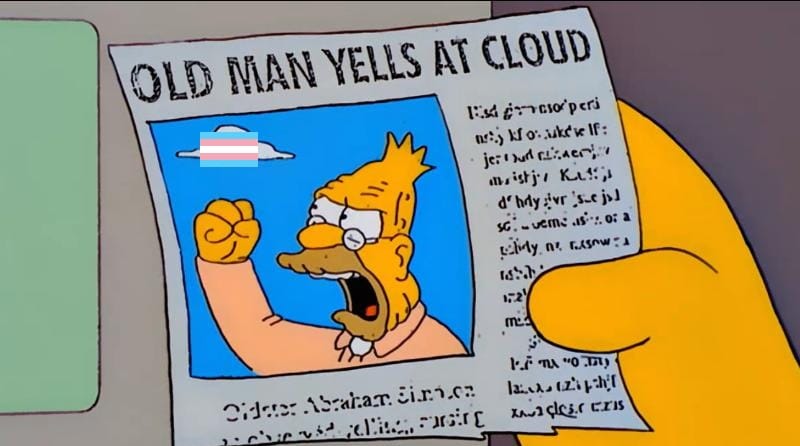
I didn’t initially want to spend time writing about Greens co-founder Drew Hutton’s expulsion from the party, because that’s exactly what the far-right wants.
The demagogues of neoliberalism have created a divide-and-conquer fear campaign to scapegoat and vilify trans folk, and I worry that the more we talk about this, the more it fuels toxic debates that give bigger platforms to queerphobia. But I’m equally mindful that we need to reflect on how and why it is that people like Mr Hutton end up spreading ideas which are harmful to trans people, and what his departure tells us about the evolution of the Greens.
Although I’m still a Queensland Greens member, I’m definitely not a mindless cheerleader for the party, and I have plenty of my own criticisms of the Greens. I do try to always assume the best of people though, and my goal in writing this is to think a little deeper than simplistic us-vs-them binaries.
For party members and supporters, and indeed activists whose politics are more radical than the party's, there are worthwhile deeper lessons in all of this. But carving out the space for those nuanced discussions without giving more oxygen to bigotry is tricky.
Drew Hutton has been a prominent environmental campaigner in Queensland for several decades, who helped build a strong foundation for the Greens, particularly in West End. But recently he claimed (without offering any compelling evidence) that "the Greens in a number of states have been taken over by a cult – a transgender and queer cult – that has come to control key decision-making positions in the party..."
At the time of writing, Drew continues to claim that he supports trans rights, but his actual views about what that means strike me as inconsistent and somewhat self-contradictory. He seems very fixated on patriarchal notions of binary sexes, and uninterested in engaging seriously with the scientific literature showing that, like gender identity, biological sex is also better understand as a spectrum rather than a strict male-female dichotomy.
Drew's anti-Greens crusade feels significant and destabilising for a lot of older greenies, but it's perhaps not especially surprising or entirely at odds with the largely centrist style of politics he and many Greens campaigners of his generation embodied.
First though, it’s worth briefly debunking a few of the broader claims made either by Mr Hutton or by others who've been vocally supportive of his position...
Questionable Claim 1: The Greens have become so intolerant of alternative viewpoints that they kick members out simply for disagreeing with or publicly criticising the party
As a Greens member who periodically expresses strong public criticism of the party, I’ve found this one particularly amusing. On the many occasions when I’ve publicly disagreed with Greens policies, or criticised the party over various decisions, this has certainly annoyed some people within the Queensland Greens. But no-one has ever referred me to the complaints committee on this basis, or tried to kick me out. The same has been true for many other party members.
Unlike Drew, who hasn’t been very active in the party since 2010, I’ve sat through plenty of vigorous Greens policy debates in recent years – both in smaller committees and large State Council meetings – where a wide range of provocative views were aired without censure or censorship.
Simply disagreeing with Greens orthodoxy, or criticising the party online, definitely isn’t enough to get your party membership cancelled.
As I’ve discussed elsewhere, I do think the Greens would be well-advised to embrace a more heterodox/pluralist approach to political communication, and not train members and spokespeople that we must all sing from exactly the same song sheet all the time. I think the party hierarchy is increasingly insisting on an unhelpfully high degree of message discipline, and is too scared of the political consequences of spokespeople publicly expressing conflicting opinions on key issues. But anyone who suggests that members are being kicked out simply because they want to debate or share alternative viewpoints is being hyperbolic and silly.
Drew’s life membership was not cancelled merely because he criticised or disagreed with party orthodoxy. He was expelled because a significant majority of current Greens members were concerned either that he was platforming and legitimising the transphobic views of others, and/or that he himself was promoting ideas that are harmful to trans people, while showing no prospect of shifting his position.
Drew has suggested that nationwide, over the past 5 years or so, at least 40 people have been 'forced out' of the Greens because they were critical of the party's trans rights stance. He hasn't specified what proportion of those 40 had their membership revoked and what proportion freely left of their own accord after finding that most other members disagreed with their views. But that's an average of about 8 per year at most.
Nationwide, current Greens membership is around 14 000. In that context, losing or expelling 8 people per year hardly seems like a 'coordinated purge' as Drew has described it.
Questionable Claim 2: The Greens’ support for trans rights explains why they’re not as popular as they used to be
The Queensland Greens have been far more electorally successful in the past decade than in previous decades. Reasonable people can debate why the party isn’t winning even more votes (I certainly have my theories). But anyone making comments along the lines of “this is why the Greens aren’t as popular as they used to be” or “the Greens are politically irrelevant now” is ignoring the factual reality that the Queensland Greens have been much more popular and politically effective in recent years than in the early 2000s or late 90s.
Time will tell whether the Greens' recent growth continues, but the party has been vocally pro-trans rights for years now, without suffering any apparent electoral penalty for this position. Drew's ongoing public attacks against the party will probably do it much more damage in the long-run than anything in the Greens' actual policy platform.
Questionable Claim 3: The decision to expel Drew was made without a fair, democratic process by a small factional group/fringe minority/faceless powerbrokers
Complaints about Mr Hutton were originally handled by the Queensland Greens' Constitution and Arbitration Committee – a small group whose members are chosen by the broader party membership. But the final decision confirming revocation of Drew’s life membership was made by a full meeting of the Queensland Greens State Council.
The State Council is comprised of elected branch delegates from each of the party’s 31 branches across Queensland (each branch sends up to 4 delegates to State Council depending on the branch’s size), representing close to 3000 Queensland Greens members (this includes elected MPs/city councillors, who can express their views through their branch if they wish).
Drew was given an opportunity to address the entire State Council – to freely present his views and justifications – and it seems that despite also prosecuting his case ahead of time via other channels, he was unable to persuade delegates to decide in his favour.
No complaints process is 100% perfect, but Drew does at least seem to have been given ample opportunity to say his piece. He obviously doesn’t like the outcome, but suggesting the process wasn’t democratic simply because he personally feels the party didn’t strike the right balance between 'protecting free speech' and protecting minorities from harm is intellectually lazy at best.
His repeated calls that Greens leader Larissa Waters ought to misuse her power to intervene in established party processes and overrule the position decided on by the majority of members is directly contrary to the principles of grassroots participatory democracy.
To be honest though, I'm personally less concerned about whether the original specific Facebook posts that triggered the complaint against Drew were serious enough to merit such a strong response from the party, and more interested in his ongoing pattern of behaviour over the past few years.
I haven't conducted any methodologically sound surveys to back this up, but I suspect that a lot of members who decided to expel Drew weren't focussed exclusively on the initial complained-of Facebook posts, but on a more holistic appraisal of his views and values (as evidenced by his actions). Rightly or wrongly, members were likely also influenced by his recent public commentary about trans rights and by his decision to speak at transphobic rallies.

Questionable Claim 4: The Greens have been ‘infiltrated’ by a large number of trans activists/a 'trans cult' who don’t care about the environment and are focussed exclusively on queer rights
This is the point where Mr Hutton’s narrative tips over the edge into outright fanciful conspiracy theory. Instead of accepting that he's politically out of step with the majority of Queensland Greens members, he's concocted an alternate reality where dozens of people with a shared ‘trans extremist’ agenda have all joined and then hijacked the party. That he can make such claims with a straight face underscores how little meaningful involvement Drew has had with the Greens in recent years, and how little he understands the modern party.
I don’t know which is more laughable and unlikely... that Drew’s imagined brigade of single-issue trans ideologues all deliberately coordinated their efforts to infiltrate dozens of Greens branches from Toowoomba to Cairns just so they could brainwash existing members of a minor political party. Or that all this somehow happened by pure coincidence.
Drew still hasn't offered any clear, compelling explanation for what this imaginary cult’s motivations might be. I'm not sure if he thinks that I'm also part of this trans cult, but I suppose expressing a view that's different to his must mean that I am.
Personally I think all political parties are a little cult-y. But if a political organisation takes a strong position in support of trans rights, and decides to expel members who promote views which the broader membership considers harmful to trans people, that doesn't automatically make it a cult.
The troubling bit is that once someone tips over into this kind of conspiracy thinking, fueled by group-think confirmation bias and social media echo chambers, it’s almost impossible to pull them out again through rational conversation. Anyone who attempts to highlight logical flaws or facts that disprove their conspiracy theory is either a naive, brainwashed sheep, or part of the conspiracy themselves.
Repeating dog whistles still fuels bigotry
Transphobic disinformation is spreading fast. For queerphobic conservatives, the cliched anti-trans talking points about women's sport, bathrooms and puberty blockers aren't really about those specific issues. They're intended to convey the bigoted subtext that the very presence and existence of trans people is a threat to the safety of women and children – to create a general vibe of uneasiness in society about trans folk, and in fact anyone who doesn't fit neatly into binary patriarchal gender roles.
The most generous interpretation of Drew's behaviour is that he's completely oblivious and naive about this context, and the coded meanings his words carry. But plenty of people have made an effort to educate him about this.
If a bunch of marginalised people are telling you that something you're saying or doing is harmful to them, and you then keep doing it while complaining your free speech is being hindered, that says a lot about how committed you are to standing in solidarity with them.

Whatever Mr Hutton's intentions are, the impact of what he says is obvious. Queer community members observe one of the founders of the Greens – a celebrated high-profile member – publicly spouting lines that are widely understood as conveying the meaning that the existence of trans women in a space is inherently dangerous to other women. Someone with Drew's depth of political experience should be wise enough to get why that's a problem for a progressive political party.
The limits of green liberalism?
"Ecology without class struggle is [just] gardening" - Chico Mendes
In recent years, conservative attacks in Queensland have shifted from “the Greens only care about the environment – they don’t care about anything else!” to “the Greens don’t care about the environment anymore!”
Both attacks are incorrect and disingenuous, but the grain of truth they exploit is that in its early days, the Queensland party seems to have lacked a holistic internationalist critique of capitalist colonialism and the economic drivers of environmental destruction (not to mention patriarchal heteronormativity, ableism, imperialism etc). Back then, if you weren’t paying much attention, you could be forgiven for thinking that the Greens were myopically focused on environmental issues.
More importantly, it was possible to remain an active Greens member for years without being directly challenged to reconsider views which were sexist/racist/classist/ableist/queerphobic. Depending on their social circles, members who joined the Greens because they were concerned about native forest logging or nuclear proliferation might, over time, be exposed to radical critiques on a wider range of issues, but the party itself wasn’t usually leading those conversations.
Crucially, the absence of a strong intersectional political outlook, and the centrist predilection for avoiding conflict, meant the legitimate concerns of marginalised individuals were often deprioritised in order to avoid discomfiting or hurting the feelings of more privileged members.
While the Queensland Greens always had its share of hippie revolutionaries and working class unionists, its core active membership were mostly middle-class reformists who (naively) believed it was possible to protect the environment for future generations without dismantling or transforming our broader unjust economic and social systems. Or if they actually did aspire to system change, they were worried they couldn’t admit that publicly for fear of scaring off voters.
My impression is that Drew Hutton, a university lecturer and former school captain of Brisbane Boys Grammar, was a product of his comparatively privileged life experiences and social circles, and ultimately much more of a reformist than a revolutionary.
Talking to older activists who were kicking around West End and Paddington in the party’s early years, there’s still some regret and even bitterness that neither anarchists nor state socialists could exert much influence over the direction of the Queensland Greens, which instead evolved as a kind of small-L liberal political project without a coherent political strategy or theory of change (this deficiency persists today).
This political incoherence was most clearly illustrated in the 1995 Queensland state election, when the Greens did not directly encourage their voters to preference Labor ahead of the Liberal and National parties. The Greens' primary vote was small, but the message it sent to the electorate – that Labor was no better on the environment than the Liberals – had broader ramifications. The preferencing decision was a crucial factor behind Labor losing marginal seats like Mulgrave to the Nationals and Mount Ommaney to the Liberals. It contributed to Wayne Goss losing government after a by-election in Mundingburra the following February, and the return of the Liberal National coalition to power in Queensland.
The conservatives’ state election gains in 1995 strengthened their power base, which in turn helped John Howard’s campaign win several federal seats around Queensland in 1996 (I’m certainly not suggesting the Queensland Greens’ state election preference decision was a major factor contributing to Paul Keating’s loss, but the Lib-Nat Queensland resurgence surely made things easier for Howard).

For Drew, preferencing the Liberals and Nationals, which were overtly racist, sexist and homophobic parties, was apparently justifiable in order to send Labor a message about environmental conservation. But it also wasn't as big a leap politically for Drew Hutton’s Greens as it would be for most Queensland Greens members today.
[Correction (added on 16/8/25): This article (which I showed to Drew prior to publication) originally suggested that the Greens explicitly encouraged voters to preference Liberal and National candidates ahead of Labor. This was incorrect, and I apologise for the error. In fact, the Greens ran an 'open ticket' telling voters to allocate preferences however they wished. This did help the conservatives and undermined Labor, but was not, in my view, as politically indefensible as directly indicating that the Lib-Nats were better than Labor.
Interestingly, a lot of public reporting from the time – including statements Drew and other Greens supporters made to the media – does still give the impression that the Greens were supporting the Lib-Nats over Labor, which no doubt influenced voters. This is a reminder that if a minor party is going to adopt an ambiguous position about which major party it prefers, there's a genuine risk that this ambiguity will be weaponised against them. If the media and the major parties are all saying that you support the Liberals, and you're not vocally and effectively contradicting that misinformation, that's the message that people will remember.]
That flavour of green politics – conservationist and anti-consumerist but not explicitly anti-capitalist, superficially opposed to racism and sexism but not robustly critical of colonial imperialism or heteropatriarchy, concerned about corporate influence over government but naive about the ways representative democratic systems inevitably centralise power and thus facilitate corruption – seems to have remained dominant in the Queensland Greens throughout the 1990s and early 2000s.
Over the past five to ten years, the party membership has diversified somewhat, both in terms of demographics and political orientations, and this diversification is revealing the contradictions of green liberalism across a range of policy spaces.
Members generally now seem to agree that capitalism is inherently hostile to sustainable environmental management, and that a true green politics demands deeper systemic change (including meaningful resistance to other interconnected forms of injustice).
If you don’t want property developers clearing koala habitat to build suburban sprawl dormitory suburbs, you have to be willing to challenge the treatment of housing as a for-profit commodity, which means critiquing the very existence of landlords. If you don’t want cops beating up climate protesters or Aboriginal people dying in police custody, maybe you have to re-examine the institution of policing itself.
In many cases, longer-term Greens members are engaging seriously and respectfully with these challenging ideas (often advocated by younger generations and people from more marginalised backgrounds). Plenty of older greenies have remained active party organisers and campaigners well into their 70s and 80s, and their ongoing connection to social movements and younger Greens supporters facilitates valuable two-way education.
It’s a mistake to characterise the political evolution of the Queensland Greens as being entirely due to new, more radical members joining. As the party’s campaigning reach has grown, existing middle-class, environmentally-focussed members are more commonly connecting with voters outside their personal bubbles and networks, and these experiences are transforming their political horizons too.
Many longer-term supporters – myself included – are also becoming radicalised through realising that the reforms we previously campaigned for often aren’t effective enough in practice once implemented.
However, there are also dozens of Greens members who don’t show up to meetings and campaign events, and are instead forming opinions about the world via Courier Mail opinion pieces and generationally-segregated Facebook echo chambers. Such people seem more susceptible not only to paranoid fear campaigns about trans folk, but to genocide-denying Israeli propaganda, Labor spin about the Greens being obstructive, and mischaracterisation of non-violent disruptive protest as violence, often while still identifying as Greens supporters.
The party will have to develop a more strategic response to this conservative drift among sections of its membership if it’s to remain sufficiently cohesive and politically effective. But a key step is understanding the broader political currents we’re all swimming in.
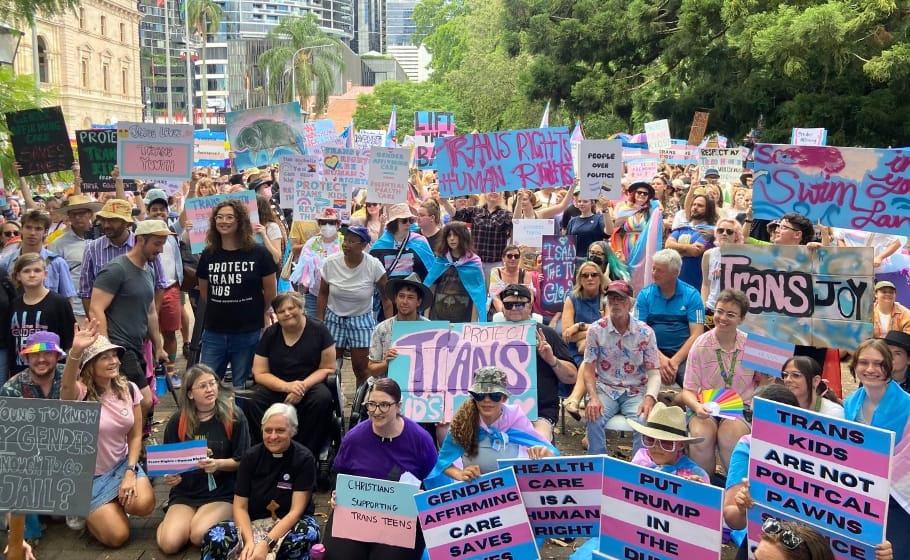
Transphobia is not a side-issue
For many liberals, people expressing transphobic ideas are seen as backwards, close-minded and problematic, but not necessarily dangerous. Someone behaving as Drew has might be grudgingly tolerated in the way that you put up with that conservative uncle who means well but periodically uses out-dated, cringey terminology.
Anti-trans commentary is understood and treated by liberal Greens as a distraction from ‘the bigger issues’ that is best ignored so as not to give it more oxygen and derail advocacy on climate action or housing justice. We perhaps saw evidence of this orientation even in the way Greens leader Larissa Waters handled her ABC interview following Drew’s attack on the party. She seemed eager to move on and talk about other stuff, rather than diving into the underlying politics of why the majority of members supported Drew’s exclusion, and why tolerating intolerance would not be upholding free speech, but is in fact antithetical to it.
In contrast, those of us paying closer attention to broader political currents understand that fear-mongering about trans people is a core element of rising fascism around the globe, and needs to be challenged head-on.
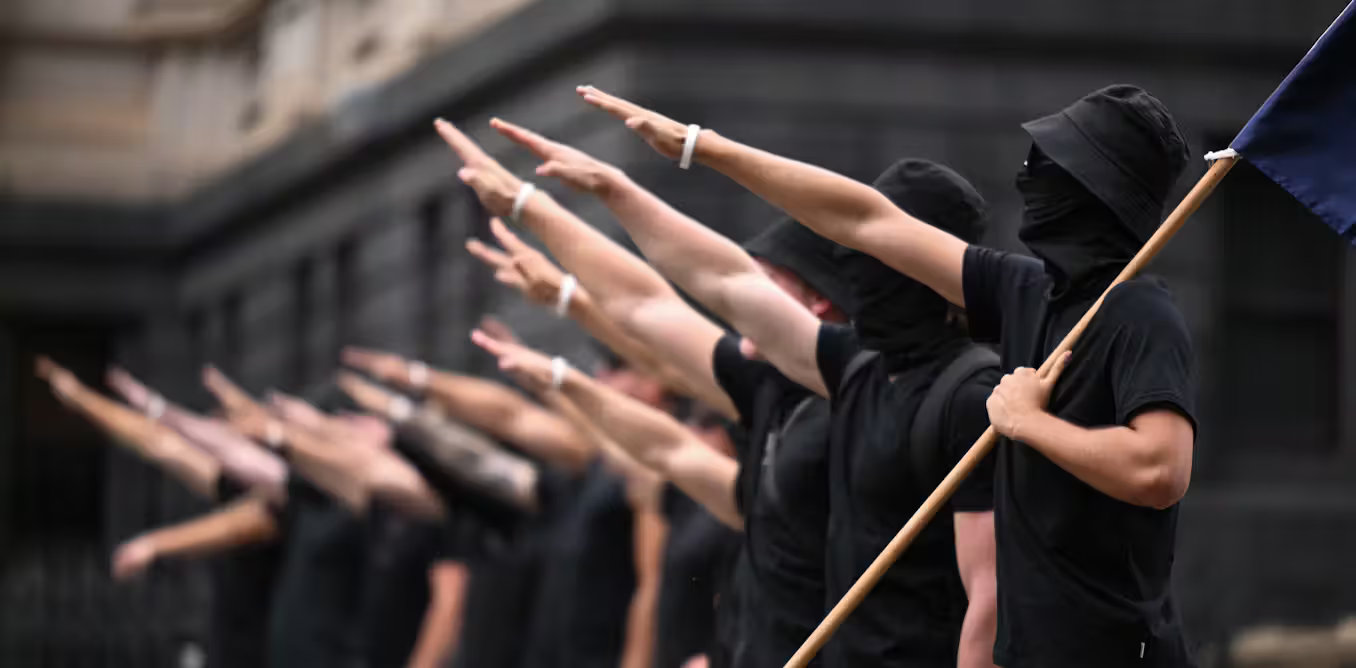
The kinds of disingenuous arguments many transphobes are making – such as that trans women are really just dudes wanting to sneak into the ladies bathroom so they can perve on or assault women – are not good faith policy debates grounded in facts and reason. They’re a fear-driven attempt to deny that trans people have a right to exist.
Once you start tolerating debates about trans people’s very existence and humanity (in the name of ‘free speech’), or you take seriously baseless delusions that trans people are an inherent threat to the physical safety of women and children, you open the door to all kinds of authoritarian attacks on people’s basic human rights.
Right-wing thought-leaders aren’t picking fights about trans rights just because it’s a quick way to derail conversations. A key reason for their apparent obsession is that the very existence of trans folk threatens and destabilises heteropatriarchal capitalism.
Our entire unjust economic system – and indeed society more broadly – is built upon the fact that many kinds of domestic work/care work/reproductive work are not paid for or valued economically, and on the notion that women are inherently ‘more suited’ towards the kinds of gendered labour that capitalism is structurally incapable of valuing.
So many forms of coercive domination in society depend on the maintenance of patriarchy for their continued operation. The system requires strictly-defined binary genders in order to maintain unjust power structures.
But the very existence of trans people, non-binary people and gender-fluid people threatens this system. That’s why conservative political forces are launching an all-out attack on trans rights, hoping to scare people back into the closet; the increasing visibility and pride of radical queer communities directly undermines the established patriarchal order.
Trans people also make for a convenient scapegoat and punching bag. At a time when so many people are feeling uneasy about the state of the world, constructing trans people as a socially destabilising 'enemy within' helps redirect anger that might otherwise be focussed on oligarchs and corporations.
The hard-right has recognised trans pride as a key battleground in their struggle against deeper social transformation. Parties like the Greens won’t be able to side-step this debate, and it’s not going away in a hurry.
“It’s not my job to educate you” doesn’t get us very far
Challenging transphobia within a political movement doesn’t mean immediately banishing everyone who naively regurgitates or amplifies commentary that amounts to transphobic dog-whistling. We have to give people the opportunity to grow and broaden their perspectives. But expecting Greens members’ political views to transform organically, as if by osmosis, clearly also doesn’t work when so many channels and discourse spaces are saturated with right-wing propaganda and fear-mongering.
When it comes to educating more privileged members of our community about racism, sexism, queerphobia, ableism etc., a lot of people from marginalised and oppressed communities understandably take a default stance of “I shouldn’t have to spend all my spare time and energy doing this voluntary work to bring you up to speed.” But whether we should have to and whether we need to are two different things.
'Political education' isn't just about providing people a handy guide on what terminology to avoid or how to say things the right way. It's about equipping one another intellectually to identify and critique propaganda, and to understand the larger forces that are shaping political debates.
Ideally, allies will take on more of this work rather than leaving it to marginalised people alone. But we're all oppressed in different ways, and those experiencing oppression are generally still best placed to explain their experiences to more privileged comrades.
In a context where conservative power-holders have far more resources and reach to spread propaganda and establishment dogma, we can’t afford to postpone or deprioritise political education for comrades who already see themselves as part of broader movements for progressive social change.
In recent years, the Queensland Greens have been focused outwards – campaigning on left populist platforms that are specifically intended to appeal to a broader range of voters with messages about housing, healthcare, education etc. in addition to environmental policies. This hasn’t left much space or time for the party to educate its existing supporters about issues like trans rights, and inoculate its base against right-wing talking points.
Where Greens spokespeople have occasionally talked about rising transphobia, such as on their public social media channels (e.g. this post from Larissa Waters), they don’t usually go into much detail explaining what it means to be trans, or debunking common right-wing talking points.

In public comms, Greens MPs generally act as though their audience already has sufficient baseline knowledge about what gender-affirming care is and why it’s needed, or the fact that trans women are statistically more likely to be the victims of sexual assault and violence (and that there’s no hard evidence whatsoever that trans women using women’s bathrooms introduces a higher safety risk for other bathroom users). Members like Drew Hutton simply haven’t been receiving any messaging from the Greens that would effectively counteract the torrent of right-wing anti-trans propaganda that social media algorithms are feeding them.
As the party grows, and its support base diversifies, the Greens will have to become much more sophisticated and proactive about bringing supporters up to speed on party policies and values.
Many of the party’s stances on controversial questions are the product of years of debate by volunteer members in local branches, state council meetings and policy committees. But even where hundreds of members have been meaningfully involved in such debates, that’s still only a small proportion of the thousands-strong membership base, and the almost 2 million Greens voters across Australia. Other party positions have been decided by MPs, electorate office staffers and closed campaign teams, generally with even less membership involvement and supporter education.
It’s impossible (and unnecessary) for the average Greens member – or even an elected rep – to get across the details of every policy area that the party has taken a position on. But where an issue becomes a hot topic of debate, or conservative forces are starting a culture war about it, we’re all going to have to put in the work to educate one another.
This ideally needs to happen before comrades get to the point where they’re so locked into a misinformed view – whether that’s about trans rights or covid vaccines or geoengineering to slow global warming (get ready for some big debates about this over coming years) – that no evidence you present is going to shift them from the position that their social media feeds and Youtube algorithms are constantly reinforcing for them.
Fragile egos and fragile coalitions
All this is kinda sad when you think about it. Watching people who were once central to a political movement part ways with it and get sucked in by right-wing disinformation is undeniably depressing.
When I reflect on this recent saga, I can't help but wonder if things might have gone differently if Drew's initial controversial Facebook posts had been dealt with via personal conversations rather than the Greens' formal party complaints processes (maybe they were and that didn't help – I don't know). His feelings were evidently hurt by that experience, which made him more susceptible to sympathetic approaches from anti-trans crusaders. This in turn seems to have radicalised him as he shifted deeper into transphobic echo chambers.
Correcting and educating people when they express or give platforms to views which border on bigotry can be tricky. How do you decide when someone is genuinely still open to respectful discussion, and when they've become so entrenched in their perspective that they're a lost cause?
As my partner Anna has rightly reminded me, how we respond to someone who is repeating bigoted ideas (either naively or callously) largely comes down to how much power they wield in our communities. Most people (myself included) couldn't get an interview on ABC's 7:30 Report or opinion pieces published in The Australian no matter how hard we tried, but Drew Hutton can. And he has made deliberate choices about what he does and doesn't use that national media platform to talk about.
It makes sense to hold one of the founders of the Greens (who's also a well-educated politics lecturer) to a higher standard than your average working-class person who's being bombarded with MAGA propaganda in their news feeds.
Part of me has a strong urge not to abandon movement elders to the online vortex of right-wing misinformation. As an abolitionist, I believe that people have the capacity to grow and change, and that excluding someone from a community because they're not yet up to speed on changing social currents harms all of us in the long-run. But once you've made numerous attempts to talk to such people respectfully, sharing research that counteracts the pseudo-science they've been amplifying, and you find that they're still intransigent and dogmatic, you don't really have a lot of options.
One thing I do agree with Drew about is that the Queensland Greens have indeed changed since the early 2000s.
The party is still heavily dominated by middle-class white Australians, and is yet to properly grapple with deeper tensions in terms of how it orients towards settler-colonialism, and the limitations of hierarchical representative 'democracy.' However it is gradually developing a more coherent and well-rounded political orientation that's increasingly willing to put the needs of oppressed peoples ahead of more powerful interests. Personally I'm not happy about all the changes, particularly how readily a lot of members seem to defer to the judgement of politicians and senior staffers. But it's reassuring to discover that the grassroots membership still has enough clout to hold key figureheads accountable when they're causing harm.
With new political groupings emerging to the left of the Greens, and increasing establishment pressure on the party to sell out in the pursuit of power, it's hard to predict what direction the organisation will evolve in over coming years. Drew's departure does feel symbolic though, perhaps marking a significant step in a longer, messy break-up with green liberalism.
What comes next remains to be seen.
Before publishing this article, I had a long phone conversation with Drew Hutton to make sure I felt confident about the opinions I've expressed here, rather than relying exclusively on his public statements and how he's been portrayed in the mainstream media. I offered to conduct a formal interview with him, but he declined. I also extended him the courtesy of sending him a draft of this article to review prior to publication (not something I would normally do) and offered him the opportunity to correct any claims he disagreed with. He didn't like the article (and obviously disagreed with a lot of it) but declined to identify any specific statements that he considered to be unfair or factually incorrect.

A lot of work goes into these articles – not just the writing itself, but researching and thinking through the underlying issues. If you value access to this kind of political commentary, please consider supporting it by signing up for a subscription.
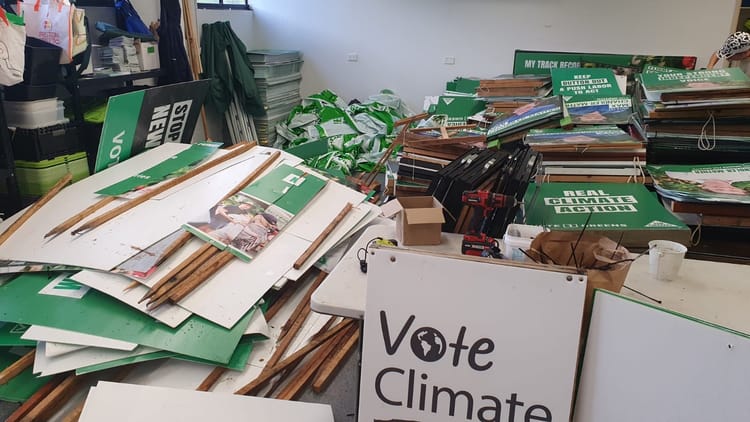
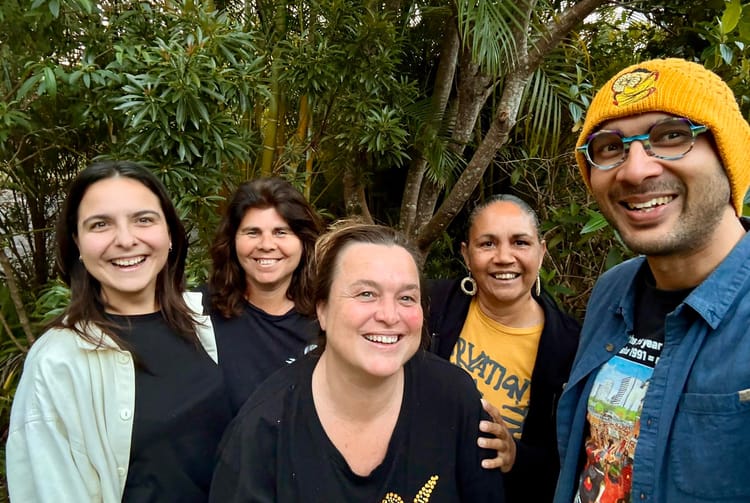
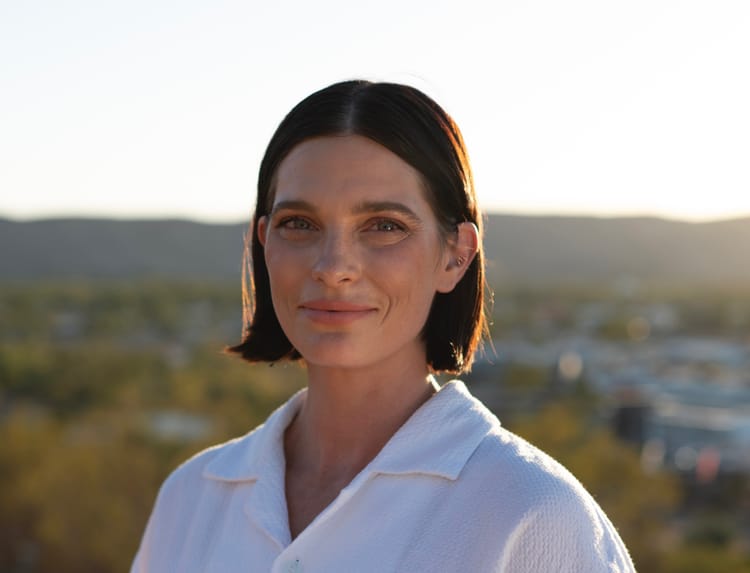
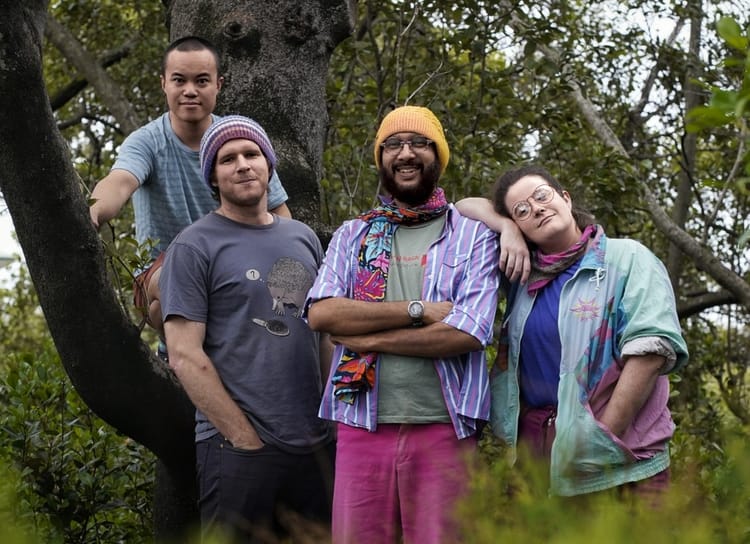
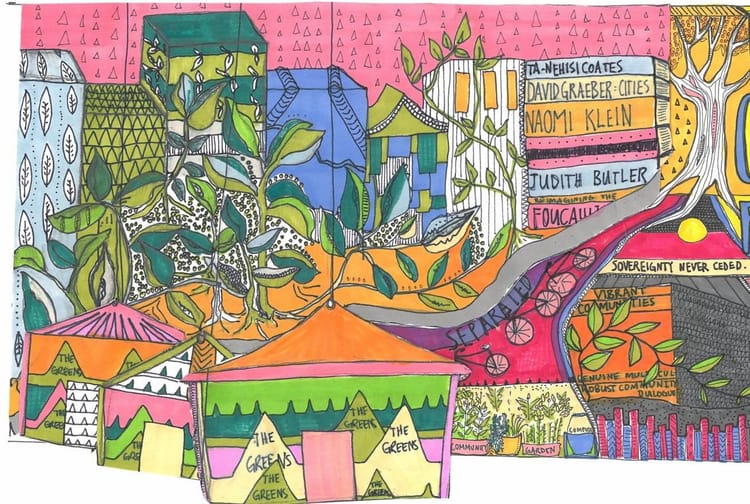
Member discussion